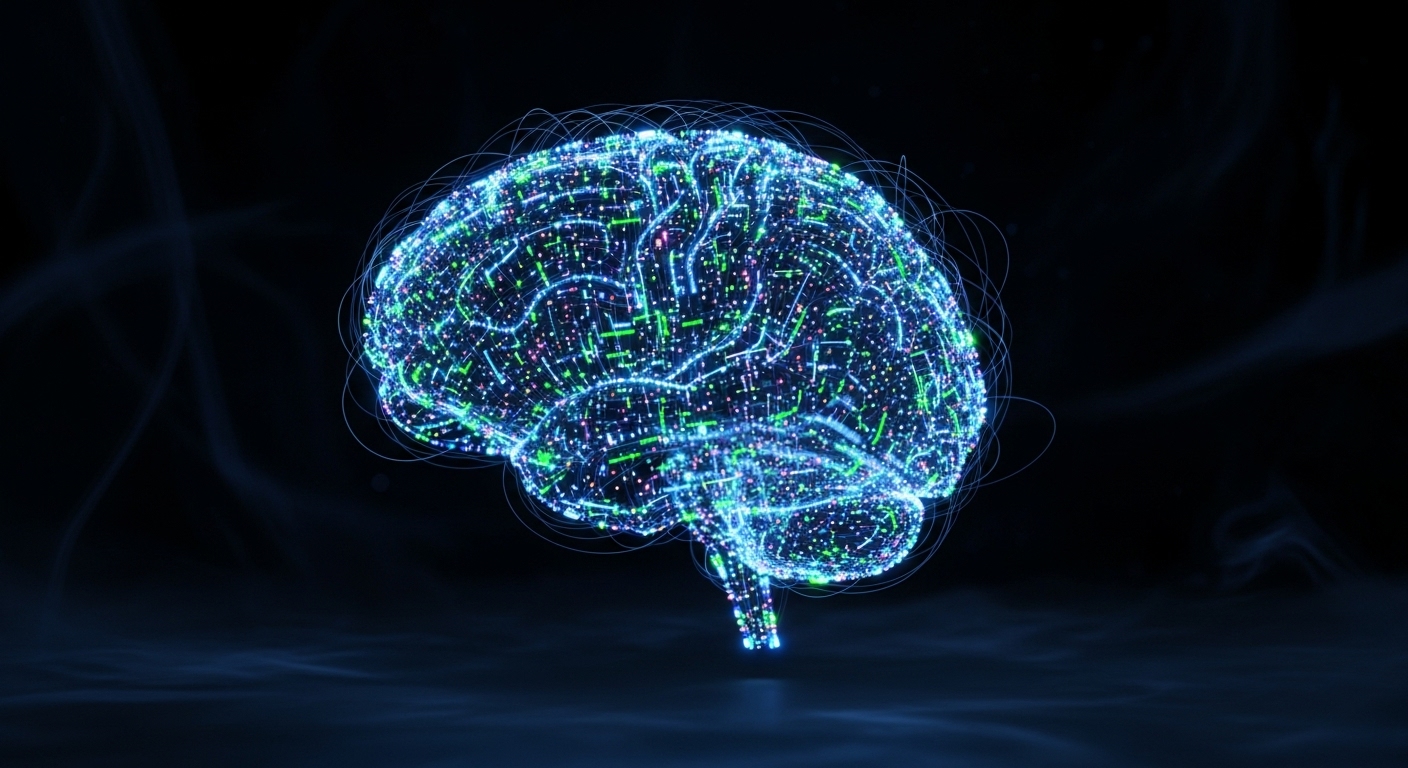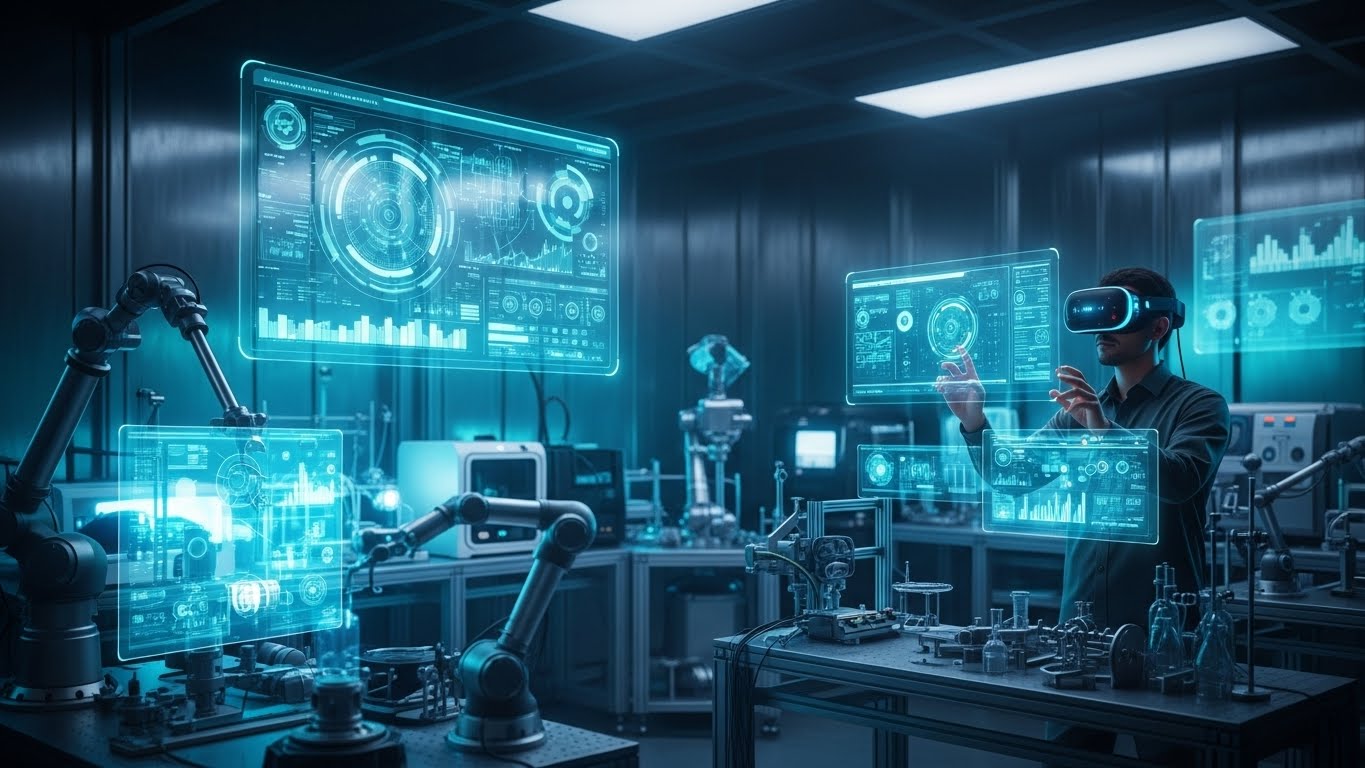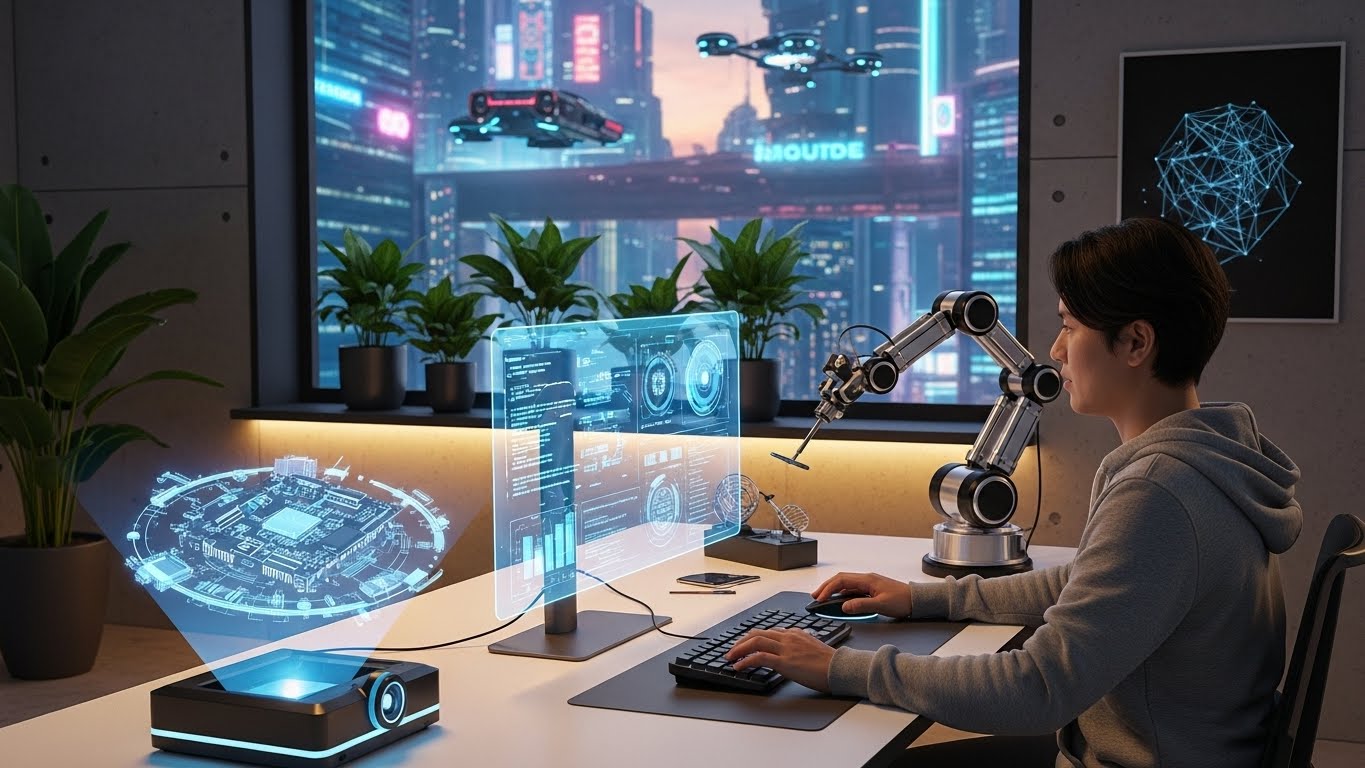Introduction to the Digital Era
Technology has become an inseparable part of modern human life. From the moment we wake up and check our smartphones to the time we fall asleep after scrolling through social media or watching videos, technology is constantly interacting with us. This digital era has transformed the way we communicate, work, study, travel, and even think. The rapid advancements in technology have paved the way for new innovations that were once considered impossible. In this blog, we explore the evolution, impact, and future of technology in various domains of life and how it continues to shape the world.
The Evolution of Technology Over Time
Human history is marked by technological advancements. The invention of simple tools during the Stone Age was the foundation of human progress. As civilizations evolved, new inventions like the wheel, writing systems, and metalworking emerged. The Industrial Revolution brought about a wave of mechanization that revolutionized agriculture, manufacturing, and transportation. Steam engines replaced manual labor, and factories became hubs of innovation.
The development of electricity further accelerated technological progress. In the late 19th and early 20th centuries, inventions like the telephone, light bulb, and radio changed communication and lifestyle forever. The second half of the 20th century introduced computers and the internet, which transformed the world from mechanical to digital. Today, technology continues to evolve at an exponential rate, with innovations in artificial intelligence, quantum computing, biotechnology, and space exploration.
The Rise of the Internet and Digital Communication
One of the most revolutionary innovations in human history is the internet. It has reshaped communication, education, commerce, and entertainment. The internet allows people to connect instantly across the globe through messaging, video calls, and social platforms. Digital communication has eliminated geographical barriers and brought people closer than ever before.
Email replaced traditional letters, while social media platforms became virtual communities where people share their lives. Businesses now rely on digital marketing and online platforms to reach global audiences. News and information can be accessed within seconds. However, the internet also brought challenges like misinformation, cyberbullying, privacy concerns, and digital addiction.
Smartphones and the Age of Mobility
The invention of smartphones revolutionized personal computing by putting powerful technology in the palm of our hands. Smartphones combine communication, entertainment, photography, navigation, and productivity in one device. They have transformed everyday life by providing instant access to information and services.
Mobile applications have made services like banking, shopping, education, and healthcare more accessible. Navigation apps help people travel efficiently, while fitness apps promote healthy lifestyles. The rise of mobile technology has also given birth to new industries such as app development and mobile gaming.
Artificial Intelligence and Machine Learning
Artificial Intelligence (AI) is one of the most impactful technologies of the 21st century. AI refers to the ability of machines to perform tasks that typically require human intelligence. With machine learning, AI systems can learn from data and improve over time. AI is used in various industries such as healthcare, finance, agriculture, education, and transportation.
In healthcare, AI helps diagnose diseases, analyze medical images, and assist in surgeries using robotics. In finance, AI detects fraud, provides investment recommendations, and automates customer service through chatbots. Self-driving cars powered by AI are being developed to reduce accidents and make transportation more efficient. However, AI raises ethical concerns such as job displacement, data privacy, and the potential misuse of intelligent systems.
Cloud Computing and Data Storage
Cloud computing has transformed the way data is stored, accessed, and managed. Instead of relying on physical storage devices, individuals and businesses can store data on remote servers and access it from anywhere with an internet connection. This allows for greater flexibility, scalability, and cost-efficiency.
Cloud computing is used in various industries to host websites, store databases, run applications, and manage large volumes of data. It enables businesses to operate smoothly without investing in expensive hardware. However, cloud technology also requires strong cybersecurity measures to protect sensitive information.
Cybersecurity and the Importance of Digital Safety
As reliance on technology increases, the importance of cybersecurity cannot be ignored. Cybersecurity refers to the protection of digital systems, networks, and data from unauthorized access, attacks, or damage. Cyber threats like hacking, phishing, malware, and ransomware pose serious risks to individuals and organizations.
To ensure digital safety, strong passwords, two-factor authentication, encryption, and regular updates are essential. Governments and companies are investing in cybersecurity experts to prevent cyberattacks and protect confidential data. Awareness and education about online safety are also crucial for users.
The Impact of Social Media on Modern Society
Social media has become an integral part of daily life for millions of people. It allows users to share photos, videos, thoughts, and experiences with a global audience. Social media platforms have transformed communication, marketing, and entertainment. They provide opportunities for businesses, influencers, and content creators to reach large audiences.
However, social media also has negative effects. It can lead to addiction, anxiety, depression, and unrealistic expectations due to constant comparisons. The spread of fake news and misinformation can influence public opinion and create social conflicts. Therefore, it is important to use social media responsibly.
Technology in Education: Digital Classrooms and E-Learning
Education has undergone a significant transformation due to technology. Digital classrooms allow students and teachers to interact using online platforms. E-learning provides access to educational resources anytime and anywhere. Students can attend virtual classes, submit assignments online, and collaborate on projects through digital tools.
Interactive learning tools, educational videos, and online courses make learning more engaging and personalized. Technology also helps teachers track student progress and provide instant feedback. However, digital education requires internet access and devices, which may not be available to everyone, leading to a digital divide.
Healthcare Technology: Revolutionizing Medical Science
Technology has changed the face of healthcare by improving diagnosis, treatment, and patient care. Medical devices like MRI scanners, ultrasound machines, and robotic surgery systems enhance precision and efficiency. Telemedicine allows doctors to consult patients remotely through video calls.
Wearable devices monitor heart rate, blood pressure, and sleep patterns, helping individuals track their health. Biotechnology is being used to develop vaccines, gene therapies, and personalized medicine. Despite these advancements, challenges such as high costs, data privacy, and access to healthcare remain.
The Future of Transportation: Electric and Autonomous Vehicles
Transportation technology is evolving rapidly. Electric vehicles (EVs) are becoming popular due to environmental concerns and rising fuel costs. EVs produce zero emissions and are more energy-efficient than traditional vehicles. Governments are promoting EV adoption by building charging stations and offering incentives.
Autonomous vehicles, or self-driving cars, use sensors, cameras, and AI to navigate without human intervention. They have the potential to reduce accidents, traffic congestion, and transportation costs. However, the development of autonomous vehicles requires advanced technology, regulatory approval, and public acceptance.
Smart Homes and the Internet of Things
The Internet of Things (IoT) refers to interconnected devices that communicate with each other through the internet. Smart homes use IoT technology to automate tasks like lighting, temperature control, security, and appliance management. Smart assistants respond to voice commands and help manage daily activities.
Smart home technology increases convenience, energy efficiency, and home security. However, it also raises concerns about privacy and data security, as connected devices collect and share personal information.
The Role of Technology in Business and Industry
Technology is the backbone of modern businesses and industries. Automation, robotics, and digital tools improve productivity, accuracy, and speed. Manufacturing industries use robots for assembly, packaging, and quality control. Businesses rely on software for accounting, inventory management, communication, and customer service.
E-commerce platforms allow businesses to sell products and services online to a global audience. Digital payment systems enable secure and fast transactions. Technology also supports remote work by providing tools for communication, collaboration, and project management.
Environmental Technology and Sustainable Innovations
Technology plays a crucial role in addressing environmental challenges. Renewable energy sources like solar, wind, and hydropower reduce dependence on fossil fuels and decrease carbon emissions. Innovations in energy storage, smart grids, and electric transportation support sustainability.
Environmental technology also includes waste management, water purification, and sustainable agriculture. Smart farming uses drones, sensors, and data analytics to optimize crop production and reduce resource usage. These innovations help combat climate change and protect natural resources.
Gaming and Entertainment in the Digital Age
The entertainment industry has been revolutionized by technology. Video games have evolved from simple arcade games to complex virtual worlds with realistic graphics and immersive experiences. Online gaming connects players from around the world, creating a global gaming community.
Streaming services allow users to watch movies, shows, and music on-demand. Virtual reality (VR) and augmented reality (AR) offer interactive experiences in gaming, education, and training. The entertainment industry continues to innovate by integrating AI, motion capture, and advanced animation techniques.
Space Exploration and Technology Beyond Earth
Space technology has allowed humans to explore beyond Earth. Satellites orbit the planet, providing communication, navigation, weather forecasting, and scientific data. Space agencies and private companies are working on missions to the Moon, Mars, and beyond.
The International Space Station enables research in microgravity, leading to scientific discoveries. Reusable rockets have reduced the cost of space travel. Space technology inspires innovation and expands human knowledge about the universe.
Ethical Concerns and the Future of Technology
While technology brings numerous benefits, it also raises ethical questions. Issues such as data privacy, job displacement due to automation, surveillance, and the digital divide must be addressed. Governments and organizations need to create policies to ensure responsible use of technology.
The future of technology is full of possibilities. Advancements in AI, quantum computing, biotechnology, and space exploration will continue to shape the world. Innovation must be balanced with ethics, sustainability, and inclusivity to ensure that technology benefits all of humanity.
Conclusion
Technology is a powerful force that drives human progress. It has transformed every aspect of life, from communication and education to healthcare and business. As technology continues to evolve, we must adapt and use it responsibly. The future holds endless opportunities, and with the right approach, technology can create a better world for generations to come.



